
Future in FOCUS

With its sights firmly fixed on the betterment of our profession, FOCUS24 recognises that we are all in the business of physiotherapy. Here, conference advisory committee members and presenters tell us what’s in it for you.
Be inspired at FOCUS24
The APA’s FOCUS24 Physiotherapy Conference in Perth is designed to be a transformative event tailored for physiotherapy clinicians, business owners, leaders and educators, says the chair of the FOCUS24 Conference Advisory Committee, Leo Ng.
By attending the business and leadership conference in Perth next month, practitioners will benefit from a program that offers depth and breadth, supporting physiotherapists in every area of their practice.
The collaborative effort, with committee members from three different groups (Leadership and Management, Business and Education), ensures a diverse and comprehensive learning experience.
Why should you attend?
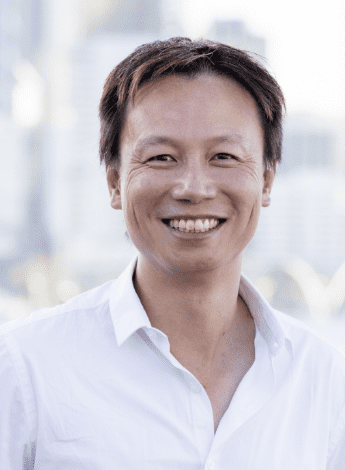
Leo Ng APAM is an associate professor at Swinburne University of Technology.
The conference will equip you with cutting-edge techniques and information to optimise your practice management skills.
You’ll gain insights into how to deliver top-notch physiotherapy services with greater efficiency and effectiveness.
In an ever-changing world of digital health and generative AI, the physiotherapy landscape is rapidly evolving.
You’ll discover how AI can revolutionise clinical practice, management and education, helping you stay at the forefront of technological advancements.
Explore digital health innovations to improve patient outcomes and practice efficiency.
Whether you aim to grow your practice or start a new venture, the conference provides entrepreneurial insights that will give you the skills and knowledge necessary for success.
Learn from experts about innovative business strategies and new opportunities in the field.
The future of health is rapidly changing and the conference will address critical issues of cultural and social inclusivity.
You will gain valuable insight into creating an equitable practice environment for diverse patient populations, thereby enhancing your clinical practice, business operations and educational approaches.
Learn practical strategies to support your staff and reduce burnout, creating a healthy and sustainable work environment.
The conference will offer tools and techniques to help you foster a positive workplace and improve staff wellbeing.
Effective communication is key to building strong relationships with patients, colleagues and stakeholders.
The conference will help you enhance your business communication skills.
Additionally, leadership-training sessions will empower you to lead and inspire your team, while workforce management strategies will help you to build and maintain a skilled and cohesive staff.
As the title of the conference suggests, this event is future-focused.
Prepare yourself to thrive in the physiotherapy industry.
Gain insights into upcoming trends and changes, ensuring you remain at the cutting edge of the profession.
Set in the beautiful Whadjuk land (Perth) along the Swan River and the state-of-the-art Crown complex, the venue promises to offer a memorable experience.
A cultural walk on the first day will enrich your time at the conference.
Exceptional keynote speakers Claire Desira, Rabia Siddique and Gerard Neesham will inspire and captivate you, leaving a lasting impression.
Join us in Perth to stay ahead in the evolving field of physiotherapy, enhance your professional practice and connect with professionals who are on the same page.
I look forward to meeting many of you at the welcome function on the first night of the conference.
These events always provide an opportunity for like-minded physiotherapists to meet, greet and advance our profession together.
I acknowledge and thank the FOCUS24 Conference Advisory Committee for their tireless work in organising this upcoming event.
Bringing cultural responsiveness into physiotherapy
At the FOCUS 2022 conference held two years ago in Melbourne, Aboriginal and Torres Strait Islander presenters asked delegates to reflect on their understanding of Aboriginal and Torres Strait Islander culture and the impacts of colonisation.
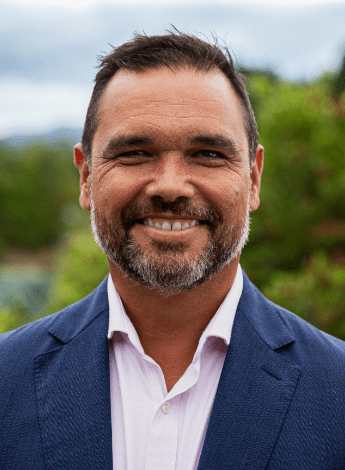
Wiradjuri man Michael Reynolds holds positions at Australian Catholic University as Deputy Head, School of Allied Health NSW and Aboriginal and Torres Strait Islander Curriculum and Pedagogy Coordinator in Physiotherapy.
This year, says Associate Professor Michael Reynolds MACP, the focus has evolved to encompass understanding cultural responsiveness and implementing it in everyday practice.
‘We want to bring cultural responsiveness into the core business of physiotherapy.
‘What can each of us do to make Aboriginal and Torres Strait Islander people feel culturally safe?’ says Michael, a Wiradjuri man and deputy head of the School of Allied Health at the Australian Catholic University NSW.
Michael says all physiotherapists should have an understanding of the social determinants of health and of how, for example, the history of Aboriginal and Torres Strait Islander people affects their health and wellbeing as well as what practitioners can do to create a culturally safe environment within their practice.
But, he says, people shouldn’t be afraid of making changes.
‘We shouldn’t be paralysed by fear of acting in this space.
‘We need to be smarter about being responsive to the needs of different people.
‘Understanding people’s stories has an impact on the care we give them,’ he says.
In addition to Michael’s talk about building cultural capability in education, Aboriginal physiotherapist and Griffith University lecturer Blayne Arnold APAM will talk about preparing physiotherapy students to work with Aboriginal and Torres Strait Islander people.
APA Honoured Member and Aboriginal physiotherapist Marilyn Morgan APAM will discuss how Ahpra is working to close the gap in healthcare through its Aboriginal and Torres Strait Islander Health Strategy and also present a session on rural practice.
>> Blayne Arnold
Preparedness of physiotherapy students to work with First Nations Australians
Concurrent Session 8A Saturday 2 November
10.50–11.50 am
>> Marilyn Morgan
Are we closing the gap? Ahpra interventions on racism. Impacts for physiotherapists
Concurrent Session 3B
Friday 1 November, 10.50–11.35 am
Our country practice: insights, opportunities, realities. A national perspective on rural practice
Concurrent Session 9A
Saturday 2 November, 2.05–3.05 pm
>> Michael Reynolds
The power of building First Nations cultural capability in education
Concurrent Session 9A Saturday 2 November
2.05–3.05 pm
Business in FOCUS
Shane Roenne, Business group representative on the FOCUS24 Conference Advisory Committee, shares his tips on some of the key business-related topics to look out for at the FOCUS24 conference.
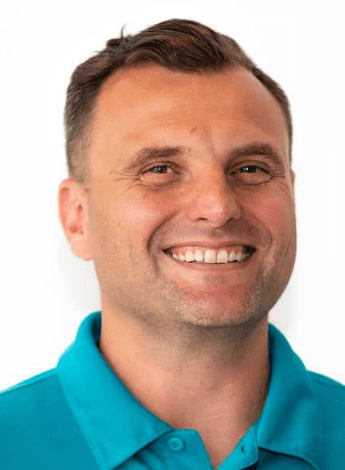
Shane Roenne APAM is the owner of The Movement Mill and chair of the APA NSW Business group.
Shane Roenne, a physiotherapist, owner of The Movement Mill clinic in Rouse Hill and current chair of the APA NSW Business group, has seen many challenges in the industry over the past 15 years.
‘Some physios only last about three to five years and there are multiple reasons why, such as burnout or a lack of remuneration.
‘We have some business coaches doing very interesting talks on leadership and development of team members as well as staff retention, which seems to be a really important topic right now.
‘I’ve been in business for 15-plus years now and there are definitely things you can do in your business to retain good people, such as career pathways development, opportunities and training, and there’ll be speakers at the conference specifically talking about these topics.’
There are also many opportunities to network before, during and after the conference.
‘The Saturday night dinner, for example, is a great opportunity to meet other like-minded physios interested in business, education and leadership.
‘If you have a medium-sized or new business then it’s a really useful place for networking,’ he says.
‘I attended the first APA business and leadership conference and it actually set me on my path to being a business owner.
‘I made friends there and if I ever had a business question or issue I’d just give them a call, so it was incredibly worthwhile for me.
‘And now I’m running a practice with five locations and forty staff.’
Steering clear of burnout
As the owner of a physiotherapy clinic, Suzanne Rath APAM is accustomed to seeing patients present with a broad range of issues.
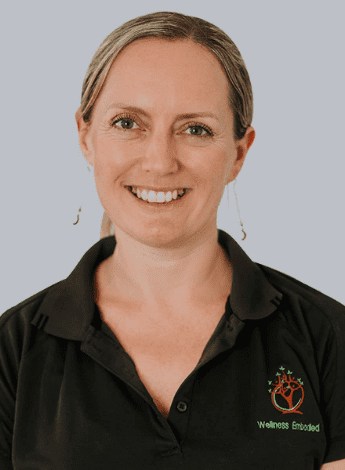
Suzanne Rath APAM is a physiotherapist and business owner in Far North Queensland.
However, her FOCUS24 conference talk, ‘Stop giving, start living. Quit needing to be everything to your team’, will shift the spotlight onto business owners instead.
‘I’ll be dispelling a few myths about leadership training as well as the idea that we need to be absolutely everything to our team,’ says Suzanne.
Burnout is a common feature of stress brought on by a lack of work-life balance, working long hours and having demanding job expectations.
It can also occur when there are issues with staff that owners feel compelled to put all of their energy into resolving.
‘Retention is always important and we have a very competitive job market,’ says Suzanne.
‘Physios are naturally very giving people, so if there’s a problem in the team, we want to fix it.
‘We may think, “What can I do better? Can I train the person more effectively? What more can I give?” instead of acknowledging that perhaps the person isn’t a good fit for the clinic.’
If you’re a clinic owner or manager who feels that you can’t switch off, Suzanne will have some important tips for you.
‘As a society, we’re switched on constantly and have so many competing priorities for our time.
‘Leading a clinic is no different; we’ll be thinking about what we should be doing for training, marketing or learning new software.
‘I think many business owners denigrate the idea of burnout; they think it’s a “millennial thing” and people just need to toughen up a bit.
‘But I definitely feel it’s becoming more prevalent.’
Suzanne has developed a tool to help physios assess how well they’re managing their own mental health so they can recognise the signs of burnout and prevent it.
‘I’ve noticed a worrying trend in clinic owners’ social media posts, for example, where they never seem to say no to their team,’ says Suzanne.
‘So this constant drive to keep your team happy is a never-ending cycle and for many people it’s at the expense of their mental health and physical wellbeing.’
>>Suzanne Rath
Stop giving, start living. Quit needing to be everything to your team
Concurrent Session 8B
Saturday 2 November, 10.50–11.50 am
Leadership in FOCUS at conference
Libby Soderholm MACP, Leadership and Management group representative on the FOCUS24 Conference Advisory Committee, outlines the key themes of the leadership and management stream.
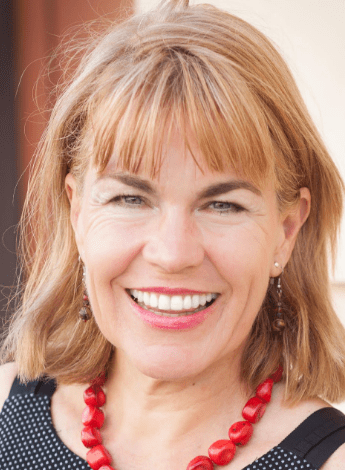
Libby Soderholm is the APA Australian representative for the International Private Physical Therapy Association.
Leaders and managers from physiotherapy backgrounds work in a wide range of different environments and face a number of specific challenges.
To help with navigating the evolving healthcare landscape, presentations at the conference will examine the following key themes.
Technology and innovation—leaders must stay abreast of advancements in physiotherapy technology as well as considering the implications, risks and opportunities of AI and cybersecurity for organisations.
Leadership, good governance and management skills—effective leadership involves clear strategic planning, financial management, risk assessment and fostering a positive workplace culture.
Training in these areas is crucial for driving departmental success and improving client outcomes.
Workforce management—in addition to climate-, social- and client-centred care, leaders need to focus on all of the organisation’s stakeholders to ensure satisfaction and high-quality outcomes.
Regulatory and policy updates—staying informed about changes in healthcare regulations and professional standards is vital for compliance and optimal management.
Diversity, equity and inclusion—leaders need to address health disparities and promote inclusive practices within their teams and in patient care as well as ensuring interdisciplinary collaboration for comprehensive care.
By focusing on these areas, physiotherapy leaders and managers can enhance their practice, improve client care and maintain a competitive edge in the ever-challenging healthcare space.
>>Libby Soderholm MACP is a non-executive director and sports physiotherapist with experience in governance and leadership in a variety of sectors. She is on the APA Leadership and Management National Committee and WA Branch Council.
Preparing students for the world of private practice
As both a physiotherapy business owner and a lecturer in musculoskeletal physiotherapy at the University of South Australia (UniSA), Veronica Tziavrangos MACP understands the need for work-ready graduates who are prepared for employment across the physiotherapy sector—be that in a hospital, a large allied health organisation or a small suburban or regional practice.
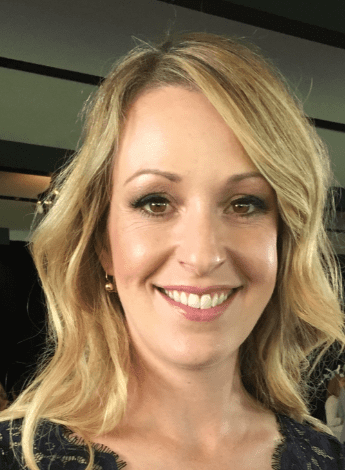
Veronica Tziavrangos is a dual APA Musculoskeletal Physiotherapist and APA Sports and Exercise Physiotherapist
Like students at other Australian universities, UniSA students do placements in teaching hospitals and large allied health organisations that offer clinical experience in a wide range of physiotherapy specialties and departments.
A few students access placements in a regional or rural centre, working with both hospitals and private practices.
The university clinic placements provide a great learning opportunity but Veronica says there are inherent difficulties in providing exposure to the private practice environment, where many new graduates will end up.
‘When I went through my training 25 years ago, most of us did public hospital work for a year or two and then moved into private practice.
‘Now the public hospital jobs are in high demand and there are limited numbers.
‘We will have around 300 graduates across the three South Australian universities this year and there are usually fewer than 30 hospital positions for new graduates so many people will go into private practice as one of their first jobs.
‘Even if it wasn’t their first preference, it might be where they have to work based on availability,’ Veronica says.
She says that while the standard focus on clinical skills is of high quality, it might not be enough to prepare students for working in a private practice setting.
‘They need help in learning how to manage their time in a fast-paced environment, maintaining a work-life balance and avoiding burnout.
‘I want to help students match their work expectations with the realities of the job.
‘We talk about attrition in physio a lot and I suspect there may be a mismatch between expectation and reality.
‘We want the students to be able to make an informed choice about their early career options,’ Veronica says.
At FOCUS24, Veronica will present a talk about the ways UniSA is helping to prepare students for their working life, whether in a hospital or private practice, through sessions with private practice physiotherapists and industry visits.
It’s a session she hopes will appeal to both other educators at the conference and private practice owners who want to improve their engagement with students and new graduates.
‘The educators might be more interested in how to engage industry but I also want to reach clinic owners who are looking to get involved in helping to prepare future graduates to be more private practice ready.
‘This would help to address one of our big challenges in private practice: attracting and retaining the right people,’ she says.
>>Veronica Tziavrangos
New educational approaches: integrating business and clinical skills for private practice readiness
Concurrent Session 6C
Friday 1 November, 2.35–3.20 pm
Getting the best from your gen Z team
Physiotherapy is an increasingly young profession and in the next decade the age composition of physiotherapists in Australia will reach an incredible tipping point.
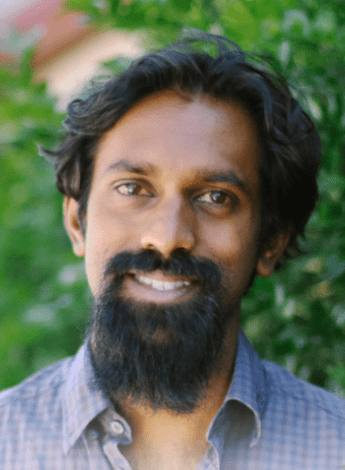
Shane Gunaratnam APAM is a physiotherapist and business coach based in Ballarat, Victoria.
By 2030 it is expected that generation Z will make up nearly half of all physiotherapy professionals.
For Shane Gunaratnam, this represents a golden opportunity for managers and businesses with gen Z employees.
At the FOCUS24 conference in Perth next month, Shane will deliver two presentations on working with generation Z practitioners, those born between 1997 and 2010.
In his first presentation, ‘Empowering diversity: the remarkable new world of generation Z’, Shane, who operates as a 100 per cent digital physiotherapy business coach, will lead a thought leadership discussion on the aptitude of generation Z to embrace technology (‘they are digital natives’) and to innovate, adding their more inclusive lens to digital developments.
‘Gen Z are very comfortable respecting personal pronouns.
‘And when you’ve got a generation where a lot of people have parents from diverse backgrounds, they’re going to see racial diversity as the norm,’ Shane says.
‘We want to bring young people of all those different backgrounds into our clinics and allow them to work together to create and to challenge the status quo.’
The second presentation, ‘How to integrate gen Z into your private practice’, offers practical steps that leaders can take to create open and effective communication with the younger generation.
It will also cover why it is important to move away from traditional hierarchical models of management into more fluid structures when integrating generation Z employees into private practice.
‘Gen Z is the most culturally diverse generation so far.
‘They are very open and very accepting of people,’ Shane says.
‘One of the big differences is that this generation is not just going to front up to work and give you everything they have straight off the bat.
‘They’re going to hold a lot of things in because the modern world is a bit of a scary place and earning their trust is imperative.
‘If young staff get “shut down” before they’ve had a chance to raise their ideas, they’re not going to feel comfortable bringing anything to the table.’
Shane will also present an evidence-based business case to attendees that will examine the role of diversity, equity and inclusion and how it improves profitability and workplace competitiveness.
>> Shane Gunaratnam
Empowering diversity: the remarkable new world of generation Z Concurrent Session 1C
Thursday 31 October, 3.35–4.20 pm
How to integrate gen Z into your private practice
Concurrent Session 4B
Friday 1 November, 11.40 am – 12.40 pm
New approaches in physiotherapy education
Dr Julie Walters, a member of the FOCUS24 conference advisory committee, talks about the themes and take-home messages from the education stream at the conference.
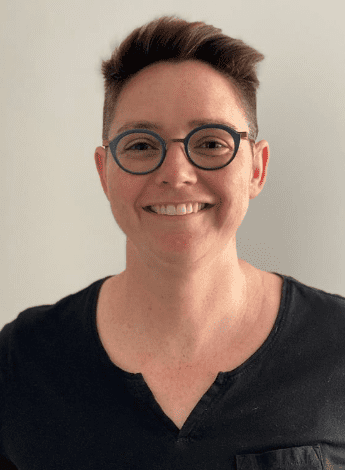
Dr Julie Walters APAM is the program Director for the undergraduate and graduate entry physiotherapy programs at UniSA.
As the University of South Australia’s program director for its entry-level physiotherapy courses, Dr Julie Walters has a keen grasp on current topics of interest in physiotherapy education.
‘A key theme in the education stream is “how to do things differently”—clinically, what we might refer to as “emerging scopes”.
‘By this I mean that we have shifted the focus away from just the clinical aspects of physiotherapy education (placement maximisation and technical skills) to a more holistic understanding of what a physiotherapist needs to succeed and meet the thresholds of practice,’ Julie says.
For example, more than half of physiotherapy graduates now enter private practice directly, so students and new graduates need to understand the demands of business and how to maximise efficiency through the use of technology and artificial intelligence.
The next generation of patients and students also has different expectations in terms of social justice and how the profession intersects with environmental policy, Aboriginal and Torres Strait Islander peoples’ health and the LGBTQIA+ community.
While most of the profession’s historical focus on education has been directed by the Australian Physiotherapy Council, students and future colleagues require this broader perspective.
Julie notes that all physiotherapists are educators—it is a requirement and fundamental component of the role, she says.
‘I would like educators to think about education in a way that goes beyond formal teaching components.
‘Education is about facilitating learning through modelling behaviour that we want to see in our future colleagues but it is also about learning from them and adapting to changes in the cultural and societal expectations of health practitioners,’ she says.
At FOCUS24, the education sessions are not just for people in formal education roles such as academics and clinical educators.
These sessions will also provide insight into what students (and therefore graduates) are learning and what they can bring to the profession.
‘Often clinicians are busy with the “doing” of physio but students and new graduates have the benefit of not being stuck in the rut of doing what we’ve always done because there’s no time to find an alternative,’ Julie says.
‘They graduate having benefited from exposure to the most contemporary research and practices, which they can bring into your business or area of employment to generate innovation—why wouldn’t you want to know what they are learning and therefore thinking?
‘Aside from the innovation that students and new graduates can bring, they are literally the future of the profession and your future colleagues and employees.
‘In a profession with an epic workforce shortage, knowing what the future workforce knows and values can only help you to generate an attractive recruitment package and stable workforce for your practice.’
>> Click here for more information about the FOCUS24 Physiotherapy conference.
© Copyright 2024 by Australian Physiotherapy Association. All rights reserved.





